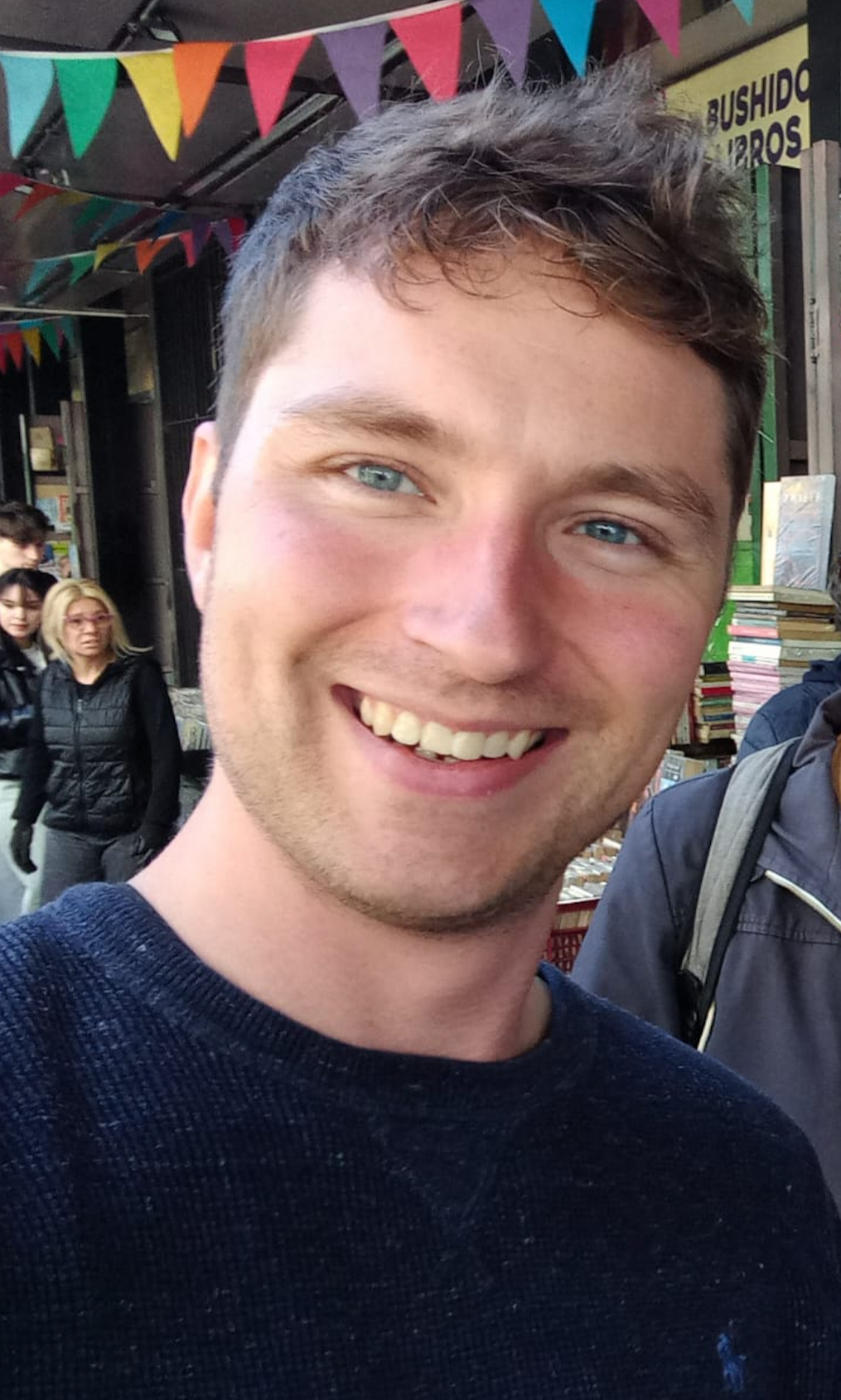Fellows 2025-2026
A full list of publications and presentations from CSLS Fellows is available here
Ilia Afanasev
University of Vienna, Austria
Mentor: Daan van Soeren
The project, inspired by the variation of the czas prszyszły zlożony (compound future tense) forms within the modern spoken standard Polish, delves into the meaning of -ć-, traditionally called an infinitive (as in Niepokalane domy będą błyszczeć w słońcu ‘Immaculate homes will sparkle-ć in the sun.’). The study argues that the meaning of -ć- is narrowness of the time frame, and demonstrates it, using the example of A. Kuśniewicz’s Król Obojga Sycylii.
Emmanuel Bawa
City University of New York, Graduate Center
Mentor: Nancy Stern
Research project: Conditional in New Testament Greek.
This research is an initial attempt to apply the CS framework to three forms in Greek, εἰ, ἐάν, άν in the New Testament, focusing on the writings of John (Gospel of John, 1st, 2nd, and 3rd Letters of John, and book of Revelation). These forms have been described as conditionals, but they contribute to a variety of other messages as well. This preliminary research seeks to account for the distribution of these particles using the Novum Testamentum Graece (Greek New Testament) as a primary source.
Ludmila Novotny
Universidad nacional de la Plata, Argentina
Mentor: Nancy Stern
Ludmila Novotny is a Certified English-Spanish Translator and researcher based in the City of Buenos Aires, Argentina. She holds a degree in Literary and Technical-Scientific Translation from the Instituto de Enseñanza Superior en Lenguas Vivas “Juan Ramón Fernández,” a degree in Legal Translation from the Pontificia Universidad Católica Argentina, and a Master’s Degree in Linguistics from the Universidad Nacional de La Plata. In addition to working as a translator and conducting her own research, Novotny works as a research assistant for a project at Osnabrück University (Germany).
In her master’s thesis, Novotny has successfully accounted for the distribution of the English form through based on a monosemic analysis of that form, guided by the principles of the Columbia School framework and using qualitative and quantitative methods. In her current research project, she adopts the same theoretical and methodological approaches with the aim to account for the distribution of the Mapudungun word pu. This form has been traditionally proposed to have two, unrelated meanings. Novotny’s proposal is that the distribution of pu in authentic discourse may be better explained by a single, invariant meaning.
In her free time, Novotny enjoys singing, practicing yoga or just relaxing at home with her husband, son and two cats.
Tanisha Pandey
University of Bern, Switzerland
Mentor: Nancy Stern
Tanisha is a first year fellow who is looking at the distribution of the form they, in particular its use for singular referents. She is studying the frequency and distribution of the form to investigate whether they signals a Number meaning. It's possible that the information on the number of referents implicated by theyis inferred by the reader from the context of the form’s use and is not indicated by the form itself. The study aims to investigate this hypothesis using short stories published in the The New Yorker as its data set, and will include both qualitative and quantitative analysis.
This work builds up on previous works conducted in Columbia School (including Stern 2019), and takes inspiration from Lavendera (1978), García (1985) and Otheguy & Shin (2021) to bring Columbia School linguistics in dialogue with social queries into language use, and vice-versa.
Tanisha was born in and finished high school in India and is currently pursuing her masters in Sociolinguistics at the University of Bern, Switzerland and lives in Hamburg, Germany.
Daan van Soeren
Universiteit van Amsterdam, Netherlands
Mentor: Bob de Jonge
Daan van Soeren recently completed his PhD project at the University of Groningen, under the auspices of the Columbia School Linguistic Society. In his dissertation, he compared the distribution of consonants in Spanish, English and Dutch words that start with either a stressed or an unstressed syllable, and the results show different distributional patterns for the two word types. In the 2025-2026 academic year, he will continue his scholarship as a postdoctoral Fellow at the Society, and compare the aforementioned sound patterns in Spanish, Dutch and English (from his previous work) to data from Guaraní, a Tupi language spoken in South America.
Lucia Zanfardini
Universidad Nacional del Comahue, Argentina
Mentor: Bob de Jonge and Angelita Martinez
This project investigates the meaning of the Spanish form para. During the 2024–2025 fellowship period, a qualitative analysis of a TripAdvisor corpus of Argentine tourist reviews led to the formulation of a monosemic hypothesis: para signals that what follows should be interpreted as a projected location toward a defined area, a contribution consistently observed in spatial, temporal, eventual, and self-referential uses.
The current stage (2025–2026) focuses on refining the contrast between para, a (projected location at a defined point) and por (location in an undefined area), and on subjecting the hypothesis to quantitative validation through statistical analysis of distributional patterns. The aim is to consolidate a systematic account of this subsystem of Spanish prepositions and to provide contributions of theoretical and pedagogical value.
Lucía Zanfardini holds a Master’s degree and a Ph.D. in Linguistics from the National University of La Plata. She was a doctoral fellow at UNLP (2014–2017), a doctoral and postdoctoral fellow at CONICET (2017–2023), and a CSLS Research Fellow in 2024–2025. She has taught at the universities of La Plata, Río Negro, and Comahue, where she currently teaches Grammar I and Grammar II.
2025-2026 Seed Grant recipients:
Wuyue Liang
Alamgir Mandal






